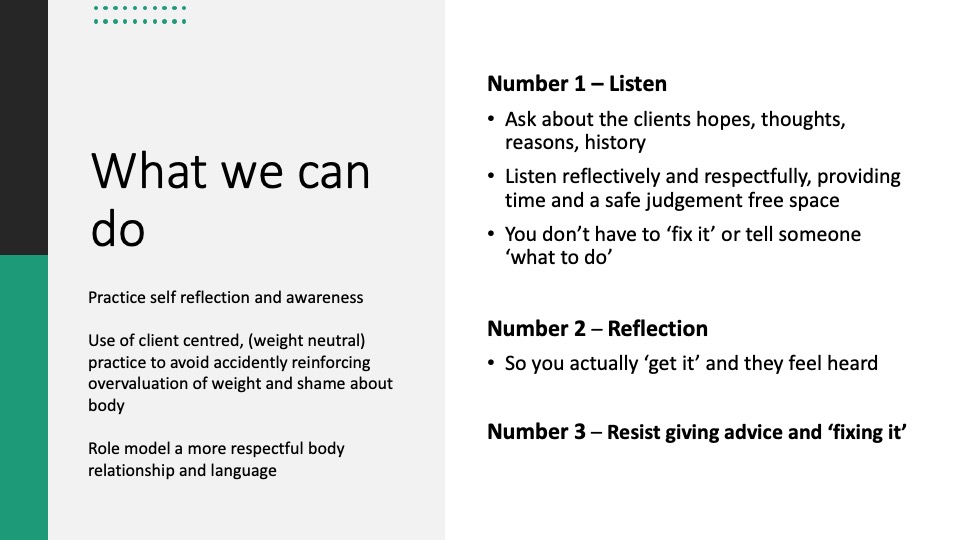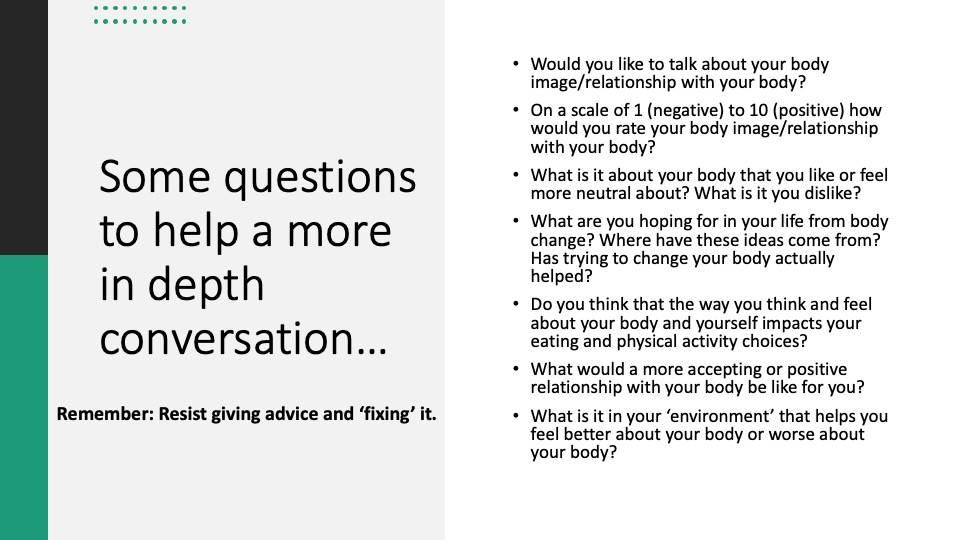Body image. Presented by Terrill Bruere, APD, Nutritional Counsellor and Supervisor
The relationship we have with our body and ourselves profoundly impacts our life choices. Many of the clients we see are unhappy with their bodies, and how we appreciate and respond to this requires insight and skills development.
Should we mention body image? How do we start a conversation about body image? What if it goes horribly wrong?
In Terrill’s presentation she gives a background to the four key concepts underpinning body image; behaviours, thoughts, feelings and perceptions.
She then discusses what we can do in a practical sense with our clients who have a poor body image. By using a client-centred approach we are not the expert telling someone what to do. We are using our knowledge and skills to guide people towards finding the best solutions for themselves.
Terrill’s advice is to provide people with space to be listened to. It may take time for them to feel safe enough to talk about it. This may be the first opportunity they have had to describe what it’s really like for them.
This can be a difficult conversation. By listening and reflecting back we show them we actually understand, and they feel heard and confident enough to talk about what’s actually happening for them. When they are able to express themselves out loud it helps them understand it for themselves. With this understanding comes the ability to shift their behaviours, thoughts, feelings and perceptions.


Terrill Bruere, APD is an experienced dietitian, known for her work in eating disorders and women’s health, particularly with polycystic ovary syndrome, and for advocacy of a weight neutral approach to dietetic practice. She has provided workshops and training in many forums on topics related to eating behaviour, body image and counselling skills. Currently she is working in private practice and consultancy in her specialist areas.
Since the early 1990’s Terrill has been part of emerging body image networks and exploring and developing these practices working with people of diverse age, body and gender backgrounds.
She is a strong advocate for broader and more sustainable client centred approaches to treatment that fit well with the evidence-based practice of a dietitian. This includes motivational interviewing, intuitive eating, and cognitive behavioural therapy modalities.
To register for the presentation and associated documents including the assessment quiz click here